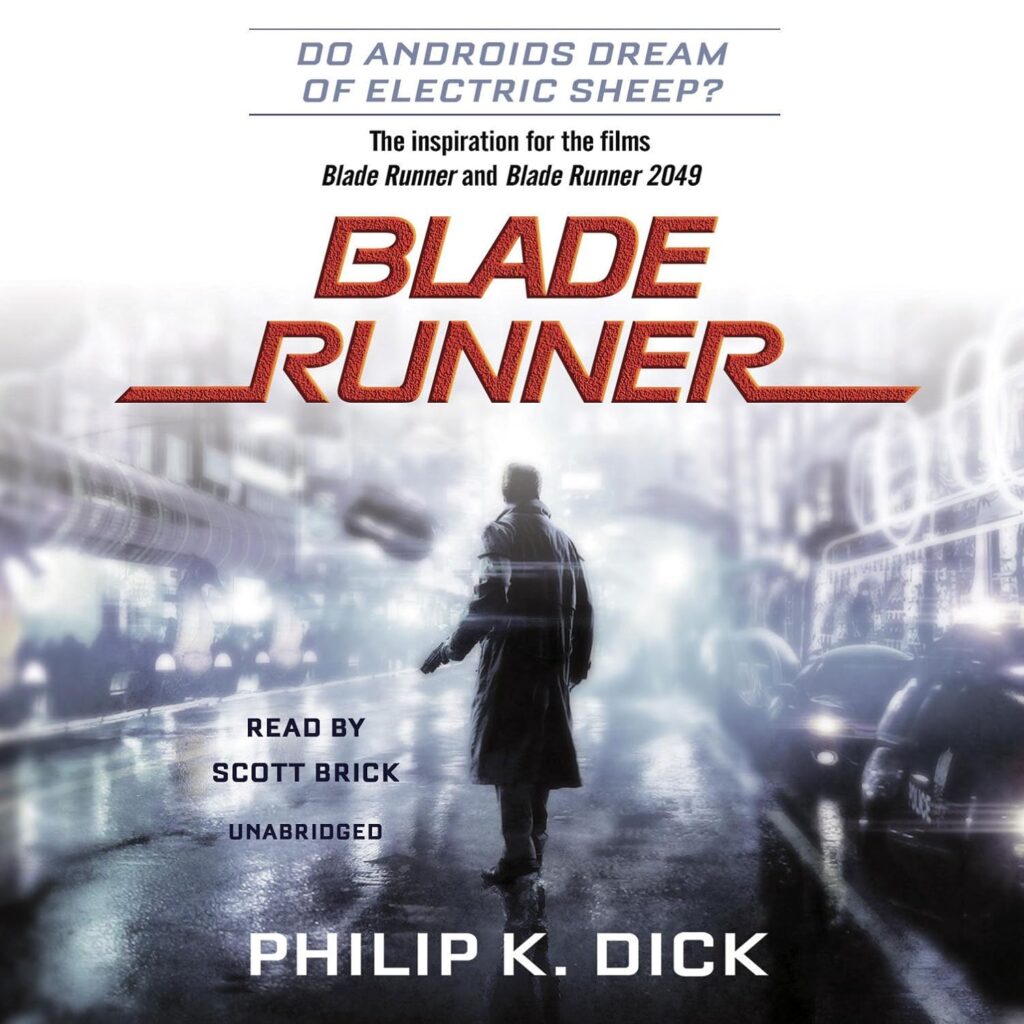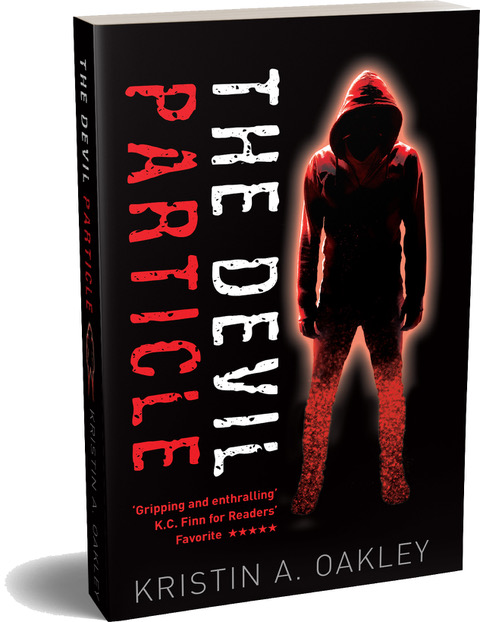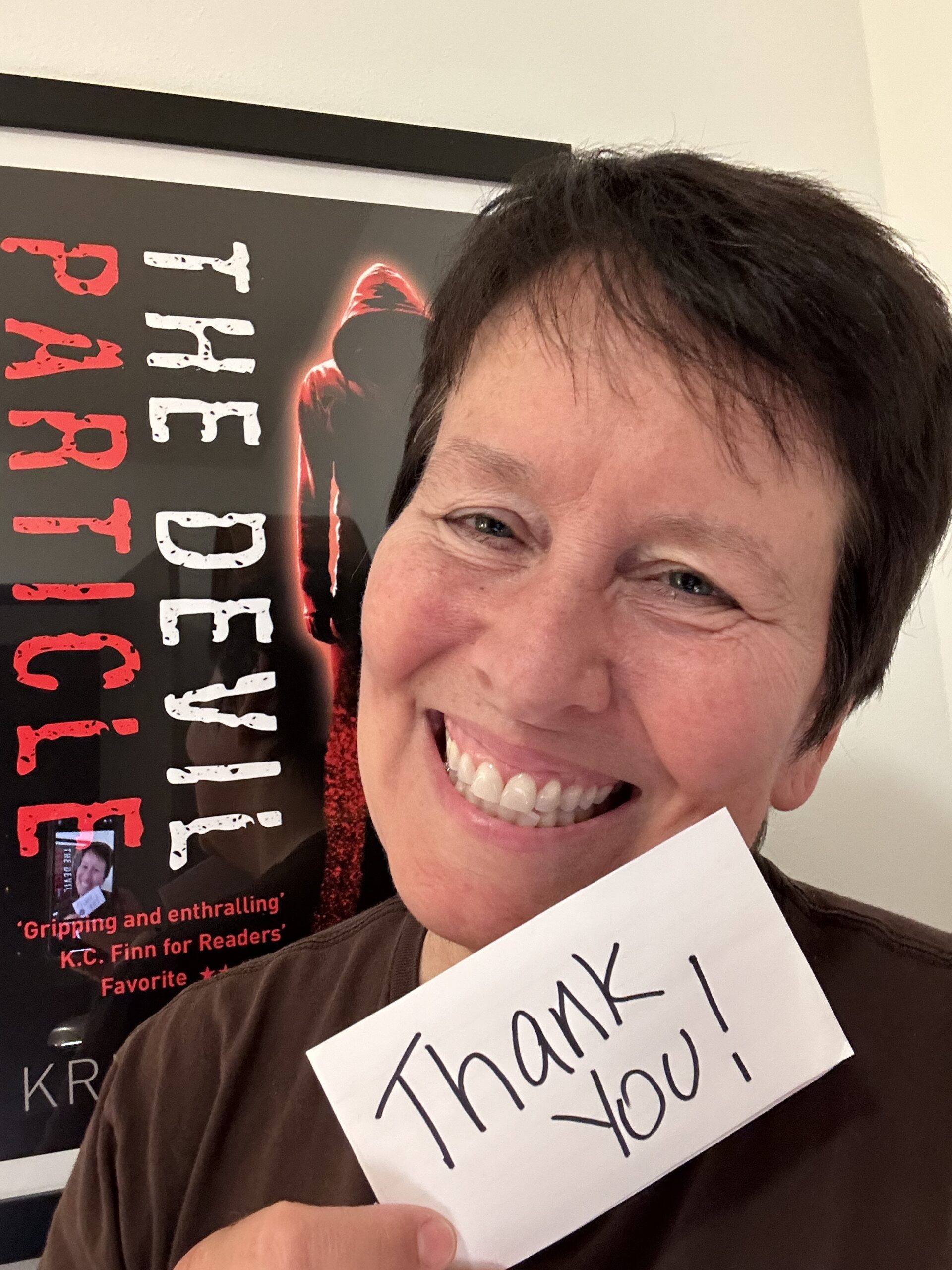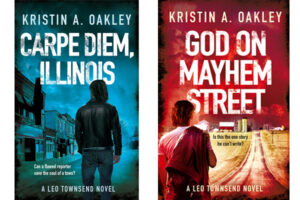Wow, what a crazy week of listening to audiobooks. My older daughter reminded me how good All-American Girl by Meg Cabot is. So, I decided to listen to it and finished it in one afternoon. It’s a well-written charming teen romance with a good deal of action. Perfect for a Sunday afternoon.
 Then, thinking I was overdue for some dystopian fiction, I decided it was time to listen to Philip K. Dick’s Do Androids Dream of Electric Sheep? read by Scott Brick. The novel inspired two movies: Blade Runner (with Harrison Ford) and Blade Runner 2049 (with Ryan Gosling).
Then, thinking I was overdue for some dystopian fiction, I decided it was time to listen to Philip K. Dick’s Do Androids Dream of Electric Sheep? read by Scott Brick. The novel inspired two movies: Blade Runner (with Harrison Ford) and Blade Runner 2049 (with Ryan Gosling).
Phew, it’s a tough one psychologically. It’s definitely a sci-fi novel I’ll remember for a long time. My mood swung from warm and happy-go-lucky, to dark and depressing—lol. Crazy how books affect us so much.
In Do Androids Dream of Electric Sheep, Rick Deckard is a bounty hunter who retires (kills) escaped humanoid androids in post-apocalyptic San Francisco. The only way he can tell they aren’t human is by administering an empathy test. Androids don’t have empathy.
Additionally, animals are extremely rare, most are extinct, and highly valued. Deckard has an electric sheep, which replicates a real sheep remarkably well, but he wants to own a living animal. That desire drives his motivation throughout the story.
What I liked about the book
I appreciated the way Philip K. Dick handled Deckard’s struggle to justify what he was doing. Deckard’s need to view the androids as machines in order to kill them, while suppressing his empathy for them, was well done.
Empathy is a powerful theme throughout the book. Not only does Deckard test for empathy, but every household has an empathy box. The box connects them to Wilbur Mercer, who fuses them to other humans’ emotions. For instance, if they’re having a great day, they can use the box to comfort someone who’s depressed. Households also have Penfield mood organs, which, depending upon the selected setting, can regulate moods.
 The science fiction aspects of the book are really interesting. Dick wrote this in 1968 and set it in 2021. Some of his ideas we use today—androids (though they’re not as realistic as those in the book) and vid phones (similar to FaceTime). His flying cars haven’t been actualized yet.
The science fiction aspects of the book are really interesting. Dick wrote this in 1968 and set it in 2021. Some of his ideas we use today—androids (though they’re not as realistic as those in the book) and vid phones (similar to FaceTime). His flying cars haven’t been actualized yet.
One thing I found amusing was Deckard’s documents are onion skin copies. I’d used onion skins while typing in a summer job during high school (we’d learned how to use them in typing class) until my boss pointed me to the Xerox machine. And the book doesn’t mention computers, which isn’t surprising as they were refrigerator-size in the sixties.
What I didn’t like about the book
I didn’t understand killing escaped androids who weren’t violent. For instance (spoiler), Deckard kills an android who is a famous opera singer. There’s no mention of her harming a soul. However, Deckard doesn’t kill an android who deceived him to protect violent androids, and he knows she’ll continue to do that. This was inconsistent.
I also wanted to know what happened to the original humans the androids replaced. For instance, another bounty hunter mentioned he worked for a police chief for three years. Yet the chief is an android who’s been on the planet after escaping Mars only three months ago. Where’s the original police chief? It’s never addressed.
 In the book, women characters don’t work outside the home, with the exception of secretaries—reminding me of growing up in the sixties. It’s interesting the author thought that would continue into 2021, and was strange to read, but that was what he knew. However, the male characters in the book are very misogynistic. They judge women based almost exclusively on their looks. One woman is described as having “breasts that smile” and I wondered what the heck that meant.
In the book, women characters don’t work outside the home, with the exception of secretaries—reminding me of growing up in the sixties. It’s interesting the author thought that would continue into 2021, and was strange to read, but that was what he knew. However, the male characters in the book are very misogynistic. They judge women based almost exclusively on their looks. One woman is described as having “breasts that smile” and I wondered what the heck that meant.
I wanted more (which isn’t necessarily a bad thing)
This is not a happy book, by any means, and, at times, it was hard to listen to. The violence is very graphic and (spoiler) the androids torture a spider. But, I am curious about the movies, so I will watch them. And I want to read more of Philip K. Dick’s work, including The Minority Report (loved the Tom Cruise movie) and A Scanner Darkly, but only after I’ve had a dose of something more lighthearted—like All-American Girl.
How has this book affected my writing
The author sparingly describes the setting, but I could immediately picture it. For instance, this is the opening of the book,
A merry little surge of electricity piped by automatic alarm from the mood organ beside his bed awakened Rick Deckard. Surprised—it always surprised him to find himself awake without prior notice—he rose from the bed, stood up in his multicolored pajamas, and stretched. Now, in her bed, his wife Iran opened her gray unmerry eyes, blinked, then groaned and shut her eyes again.
“You set your Penfield too weak,” he said to her. “I’ll reset it and you’ll be awake and—”
“Keep your hands off my settings.” Her voice held bitter sharpness. “I don’t want to be awake.”
Other than the mention of the bed, there’s no description of the setting, but because of the mood organ and his wife’s depression, I knew this world was post-apocalyptic. Philip K. Dick created a dark mood that permeated the story, and that’s something I’d like to emulate.
Do Androids Dream of Electric Sheep gets 👍🏻 👍🏻 👍🏻 👍🏻 for an unforgettable story.
A little help!

My award-winning young adult dystopian novel, The Devil Particle, only needs five more reviews on Amazon to reach the magic fifty reviews and the chance of getting some additional marketing from Amazon.
If you’ve read The Devil Particle, please leave a review. Your review doesn’t have to be long. A simple “I enjoyed this book” is enough. Thank you!





Kristin,
Breasts do smile. I love it. Ha, ha. I will use it in my writing. The book launch party is moved to March ninth at Whiskey Jacks from two to five. I’m waiting for the WWA book review in February. Five publishers have requested to read my pandemic mg. Tina is excited, but I want a yes and a book deal. We’ll see.
Hi Steve,
Ooo, keep me posted on those five publishers–that’s great news!
Kristin
So, knowing me, would you recommend I read the book or would it depress me so much I’d have to stay in bed for days? (Interesting about the realistic androids and the secretaries, they don’t seem to go together.)
I’d say give it a try. It’ll definitely stick with me for a very long time!